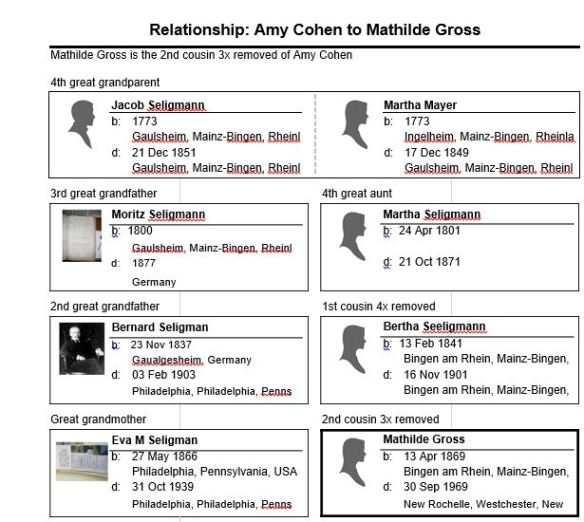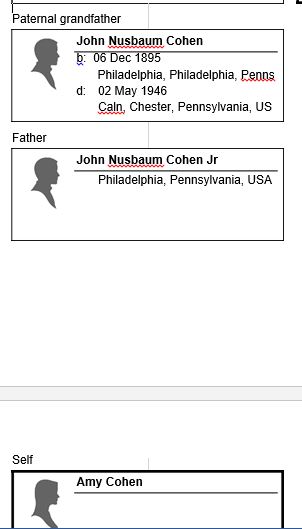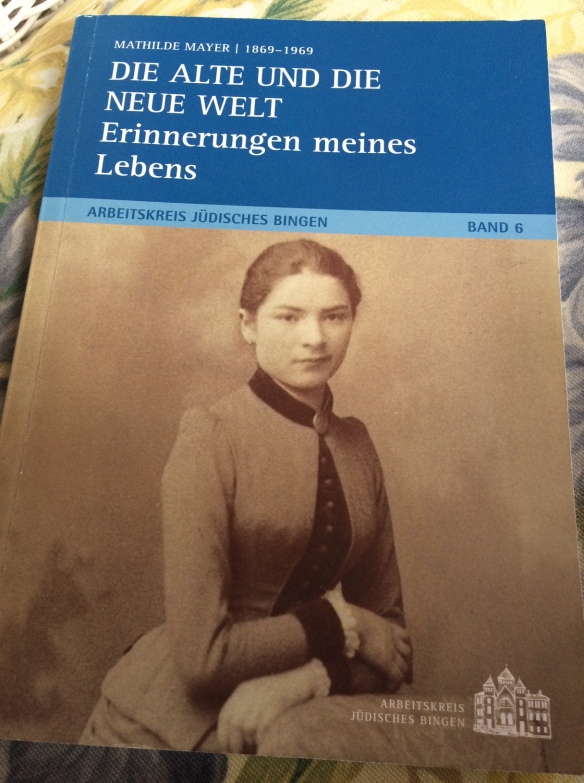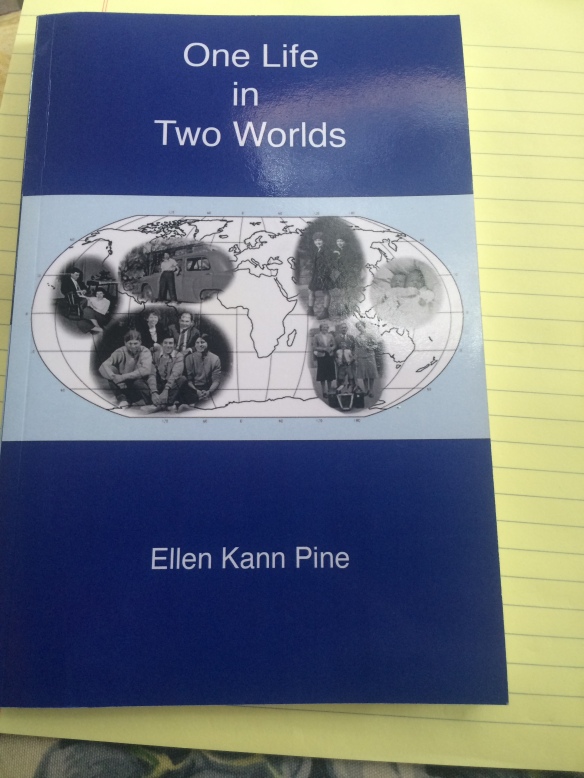Along with researching, blogging, working on my novel, and doing other ordinary things with my days, I have started studying German. I took French in high school and college, and I learned some Italian from a travel experience I had after college, but I knew no German. Well, other than a word here and there like Danke and Gesundheit.
So why, you might ask, did I decide to learn German? It certainly is a challenge. Although I’ve been delighted to see how many words are similar to English (like wein/wine and bier/beer) or Yiddish (like schön/shayne and schmutzig/schmutzy), German grammar is tough. The sentence structure is hard. The various cases are confusing; the articles and pronouns are a constant source of bewilderment. But I am enjoying the challenge.
But that doesn’t address the question of why German. Sure, I have many ancestors with German roots, and yes, it would be helpful to read the birth, marriage, and death records without depending on the generosity of people like Matthias Steinke, Ute Brandenburg, Ralph Baer, Dorothee Lottmann-Kaeseler. and others. But I had already figured out the words for birth, death, marriage, mother, father, and even the months of the year. So why struggle to learn ordinary vocabulary and grammar?
Yes, I am planning a trip to Germany for next year, and I do want to be able to get by as much as possible without expecting people to know English. But I also know that I won’t be fluent enough really to do that, and I know that most people in Germany involved in the tourist industry will speak English, just as they did in Prague, Budapest, Vienna, and Krakow.
So why bother trying to learn German? It all started with Mathilde Mayer-Gross. Who was she? She was my second cousin, three times removed:
That is, Mathilde’s grandmother Martha Seligmann and my three-time great-grandfather Moritz Seligmann were sister and brother. We are both direct descendants of Jacob Seligmann
Mathilde is also related to me through her grandfather Benjamin Seligmann since he was his wife Martha’s first cousin; Martha’s grandfather Jacob Seligmann and Benjamin’s grandfather Hirsch Seligmann were brothers.
But I digress.
Mathilde was born in Bingen, Germany, in April 1869. She left in 1937 to escape from Nazi persecution when she was almost 68 years old and a grandmother; she lived over thirty years in the United States, dying in September, 1969, when she was a hundred years old. She wrote a book about her remarkable life called Die Alte und Die Neu Welt. [The Old and The New World] (1951).
And I want to read her book. But I can only find it in German. Ute Brandenburg did a wonderful job of translating one of the chapters, but I can’t afford to pay what it would cost to translate the rest of the book.
I used Google Translate to read some other excerpts from Mathilde’s book that appear on the Arbeitskreis Judische- Bingen website. I also read the memoir written by Mathilde’s granddaughter Ellen Kann Pine, One Life in Two Worlds (2009). But I still want to read Mathilde’s book itself.
So I decided to learn German. After about four months of using the Duolingo program online, I can write a simple sentence or two to my cousin Wolfgang and his young daughter Milena, and I can understand enough to read simple sentences. The Duolingo program is wonderful; I study every day about 30 minutes a day, and I am having a lot of fun. But so far my ten year old fourth cousin Milena knows a lot more English than I know German.
Will I ever be able to read Mathilde’s book? I don’t know. I may never be fluent enough to read it without a dictionary in hand (and Google Translate), but perhaps I will be able to read and understand enough to satisfy my curiosity about her life.
In the meantime, in my next few posts, I will take a break from the Schoenthal clan, and I will share some of what I learned about Mathilde and her family from the other sources I mentioned, including Arbeitskreis Judische-Bingen, Ellen Kann Pine’s book, and Chapter 2 of Mathilde’s own book as translated by Ute Brandenburg. Maybe someday I will be able to fill in the rest of the stories of her life.





wow ~ this is very exciting Amy ~ looking forward to getting a peek in the life and world of Mathilde
LikeLiked by 1 person
Thank you, Sharon! I am having fun.
LikeLike
Amy, hello. I am the grandson of Lawrence. I read your other blog about Swank. Please contact me at the below listed email. thank you.
LikeLiked by 1 person
Thanks for reaching out—I just sent you an email!
LikeLike
Well done Amy, learning German. It’s an exciting challenge, and also an admirable one. I learnt in school and can get by. Let me know how your travel plans are shaping up for your trip next year. Good luck!
LikeLiked by 1 person
Thank you, Shirley! I have written to the man in Ansbach and am awaiting a response. I’ve heard from my contact in Hesse and am working with him! Things are shaping up. 🙂
LikeLike
Once you get the sentence structure down in your mind, reading will come much more easily than speaking. What a great goal and you have the perfect motivation to stick with it. Good for you!
LikeLiked by 2 people
Thank you! I am really enjoying the challenge. It would be better to be in a real class where I could ask questions, but Duolingo is fun.
LikeLike
You are BUSY. Wish we could meet in person to share our mutual interests.
LikeLiked by 1 person
That would be fun—are you in New England? I know your ancestors were.
LikeLike
As Linda (emptybranches) mentioned above, reading will come much more easily than speaking. I never took German classes but can read German as fast as I do English, once I get past the first chapter. I have the advantage of living in a country with a language similar to German and watch mostly German TV. You’ll do good Amy!
LikeLiked by 1 person
Thanks, Cathy, for the encouraging words. I bet if I could immerse myself more, I’d learn faster. Reading is definitely easier than speaking or even writing because I don’t have to figure out the Der-Die-das-den-mein-meine-meinem-meiner, etc. stuff. I know what they mean when I see them, but I can never remember the gender or the case stuff!
LikeLiked by 1 person
That is the reason I don’t speak or write German. Too scared to make mistakes. English is the easiest language compared to German, French, etc.
LikeLiked by 1 person
Yes, as I say to my German cousin Wolfgang when I try to write to him in German, at least with English THE is THE is THE, nouns don’t have gender, and my is my whether it’s a subject, object or indirect object. Even French is easier!
LikeLiked by 1 person
And as my husband says, “You can say you to me.”
LikeLiked by 1 person
LOL! Yes, who needs TWO forms of you, and one that also means she and they?!
LikeLiked by 1 person
You are soooo good. I took Latin in high school, 4 years so I can read bits of Italian and French but I really wish I had taken French or Spanish or German instead, as no one I know speaks Latin these days lol.
LikeLiked by 1 person
Well, it’s never too late—as my experience indicates!
LikeLike
You’re an inspiration!
LikeLiked by 1 person
Well, thanks—but mostly I am just doing what I love!
LikeLike
Hey all together – it is very interesting to read what all of you think about German. And you are right: it is very complicated. But no one must be worry: we are happy when someone tries to speak in our language. And no one cares if you say “die Mann” or “das Hund”. Come to Germany and try it. – Grüße aus Mainz (Germany)
LikeLiked by 1 person
Hallo, mein cousin! Danke fur deinen kommentar! I am glad to hear that no one will care whether I use the wrong article. What about using Sie instead of du? Do people still care about using the formal version?
LikeLike
Very exciting, Amy. Although I’m not sure that English is an easy language – we have read/red and read/reed, aunt/ant, and so many other words that must be so confusing for anyone learning our language. Have fun!
LikeLiked by 1 person
Oh, I think English must be hard also. But, hey, I know English! 🙂
LikeLike
I’m with you. Easy if you know, not so easy if you don’t. 🙂
LikeLiked by 1 person
Pingback: Life in Bingen, Germany 1850-1901: The Family of Martha and Benjamin Seligmann | Brotmanblog: A Family Journey
Pingback: A Family Uprooted by the Nazis: Mathilde Gross Mayer and Her Family | Brotmanblog: A Family Journey
Pingback: Mathilde’s Brothers: Wilhelm, Isidor, and Karl Gross | Brotmanblog: A Family Journey
Pingback: Mark Twain on Learning German | Brotmanblog: A Family Journey
Pingback: Bingen: The Early Home and the Last Home in Germany for Many in the Seligmann Family | Brotmanblog: A Family Journey
Pingback: Four Years of Learning German | Brotmanblog: A Family Journey